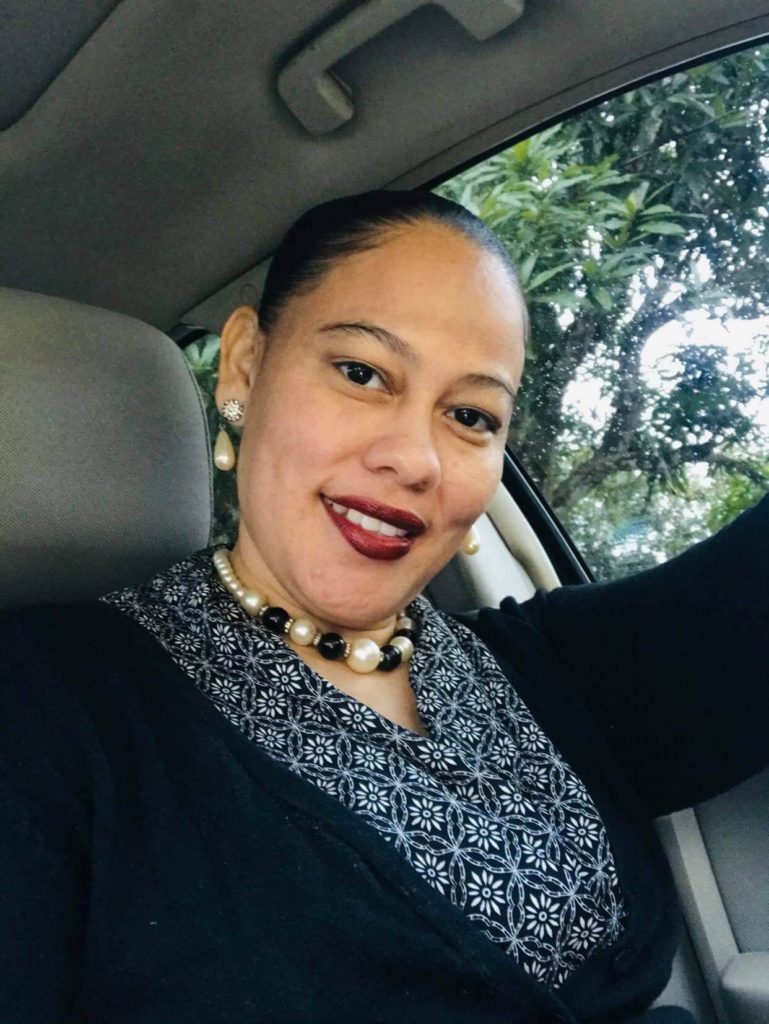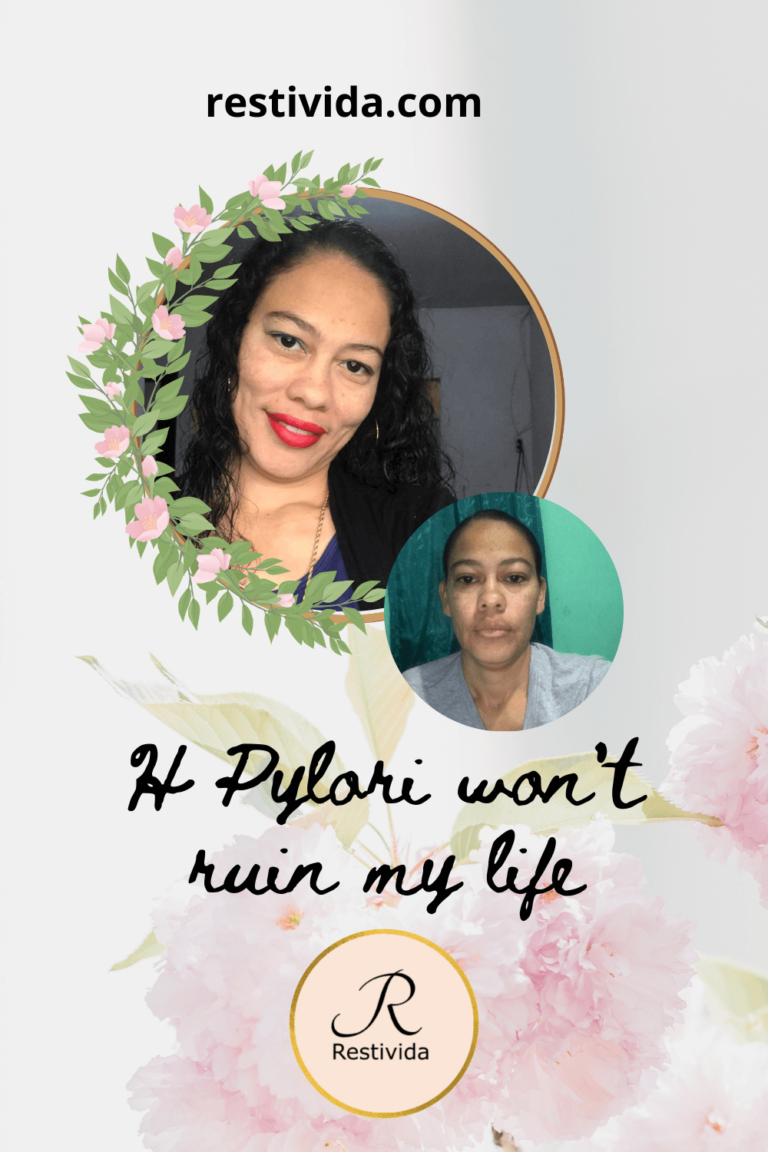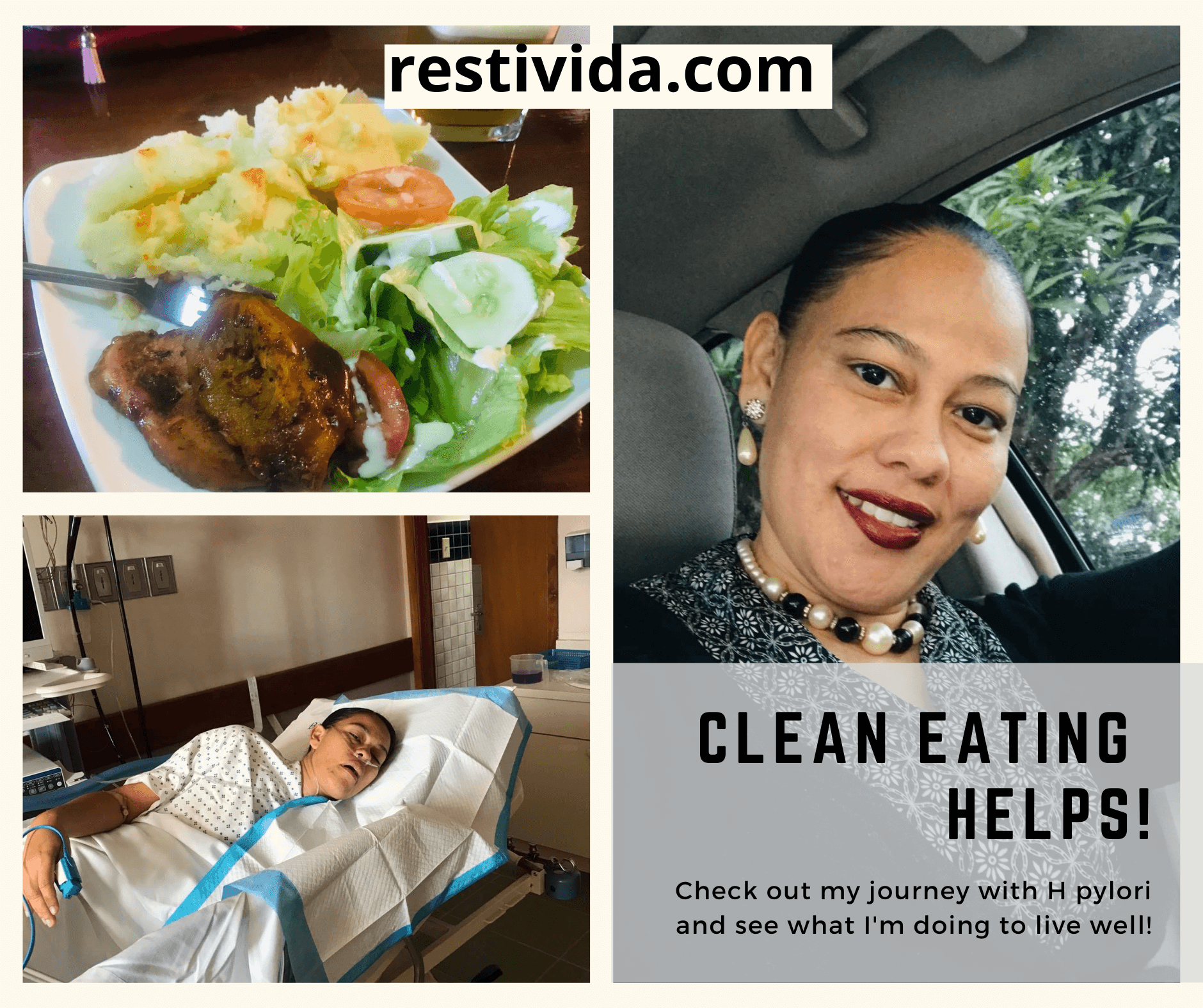H pylori treatment and management:
How one woman decided to live her best life, anyway!
Helicobacter pylori (H pylori) is a type of bacteria that affects the digestive tract. It can be acquired and show symptoms years later. It’s establishment in the gut is difficult to treat and may persist throughout a person’s lifetime if not treated. Symptoms range from severe heartburn to adenocarcinoma: cancer in mucus producing areas such as the gut.
The severity of the disease is based on these two factors:
- The the ability of that strain to make an establishment in a specific area of the gut
- The person’s genetic make-up and the body chemistry to create a favorable or non-ideal area for the bacteria.
In this interview we speak to a woman, Vanesha Rhaburn, a teacher, living and working in Belize. She openly discusses her journey from the onset of symptoms to diagnosis and finally H pylori treatment.

Vanesha Rhaburn
This article may contain affiliate links. Please see our affiliate disclosure.
Disclaimer: Please seek adequate medical attention if you believe you may be ill or you’re starting any new diet plan or lifestyle change.
The Interview: H pylori treatment and management:
1. When did you first realize something was wrong?
I first realized something was wrong after constant stabbing, abdominal pain. Something that I think a heart -attack felt like.
2. How long did you take to seek medical attention?
It took me six months to get a diagnosis. Public health only treated me for acid reflux, and they did not offer any of the tests I needed so I had to find the resources for private doctors, which could be very expensive.
3. How did people react towards you before, during and after your illness?
Before people would tell me it was all in my mind, that I told myself I could only eat certain things. Then when I drastically lost weight, they would comment that I was too thin. After my illness, many called me to ask about my battle especially persons who’d developed the same or similar condition.
Read our interview with gut bacteria expert Puunaa Dashnyam
Most people underestimate the capacity of gut microbiota’s effect on our body and mind. Gut microbiota has at least one hundred times more genes than the number of genes we have.
Read Now4. Describe the last Dr. visit, the one where you finally got a diagnosis.
I explained to the doctor that I needed an endoscopy because I could not eat and I was feeling sick and I told him I already took the blood test for what I suspected it to be. I told him I’d lose my voice in the middle of speech and I felt constant shoulder pains and jaw pains.
He scheduled the endoscopy to see inside my stomach and upper intestines. During the endoscopy they extracted a small piece of tissue and with that he did a biopsy. It turns out that I indeed I had H pylori.
He started me on antibiotics right away and medication for my bile duct muscles to relax and work properly.
5. What were the first 24 hours like mentally after you were diagnosed?
Knowing is half the battle. I was relieved to know it was not stomach cancer, but I was exhausted. Endoscopy left me with a sore chest but in the back of my mind, I was on the road to recovery!

6. What was your H pylori treatment plan? Medicine? Natural? Combination?
I started to do my own research because I didn’t feel better immediately and the Dr. kept my refilling omeprazole prescription; this is similar to Prilosec and it reduces stomach acid by turning off the proton or acid creating pump but it was giving me severe arm pains.
I decided to stop taking it and started natural therapy after researching die-off symptoms. I believe many of the symptoms I was experiencing were from the dead H. pylori bacteria rupturing and spilling its toxins in my system. I did five days of Senna tea to clear my intestines.
Then two weeks of mastic gum and Manuka honey as natural antibiotics. I began feeling better and eating cleaner; I stayed clear of dairy, which is an atomic bomb to my stomach.
7. How long before you felt like yourself again, do you even feel like yourself again?
The first 24 hours I needed to rest since I had a sore chest from the endoscopy and grogginess from the sedatives. It took like three months to feel ok. I slowly progressed and was able to maintain a healthy weight.
I’ve made a lot of progress even though I’m not ever 100% myself and I know I won’t be again. Even now, there are still issues, which can cause bouts of discomfort such as bloating whenever I take too long to eat and so on
8. What was your biggest take-away from all this?
My take away from this journey is to first, make sure the places where you purchase your food from is sanitary. Consume home-cooked meals and always carry water, apples and bars when food options are limited.
9. What do you want other sufferers to know?
H pylori treatment is not cut and dry. It’s different for everyone. There is hope, you just have to make the right choices. Don’t be ashamed to talk about the battle you’re facing. You might just be telling your story to someone and help them end the misery they’re in.
Actually, this is how I got help too; from someone who suffered and told me their story. Each one teach one.

Conclusion:
Invisible illnesses are hard to treat and difficult to manage. A lot of it comes down to understanding what is happening to your body and how to manage the changes to best suit your lifestyle, budget and comfort level.
Many thanks to Vanesha for offering her story and her photos so selflessly. Hopefully she can help someone by sharing her story.
Find out more on GUT health here!



